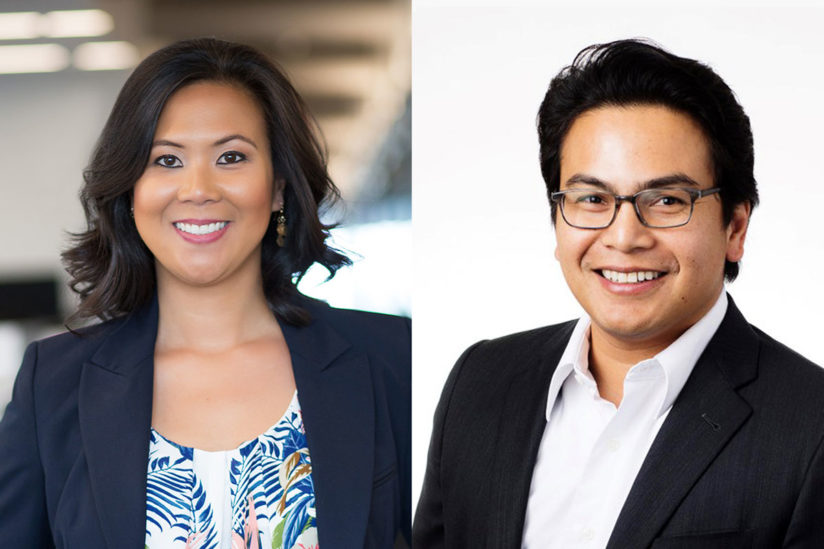Alums Corina Irvin and Ernie Ocampo are serving as Filipino role models, encouraging others to enter professions like commercial real estate and law.
Soon after starting at law firm Reed Smith, Ernie Ocampo became known as the quiet guy.
He felt comfortable speaking in front of his peers, and he wasn’t shy. But at work, Ocampo acted the way many Filipino children are taught to behave: respect authority and honor your elders.
Yet in the legal world, Ocampo said, “when there’s an office meeting or you’re in a conference call, you are not just supposed to defer to the elders and stay quiet.” He knew he had to change: He had to speak out more and contribute to conversations, even when no one prompted him to do it.
“How would I have ever made partner if I had stayed quiet?” said Ocampo, who graduated from the USC Price School of Public Policy in 2000. He knows that others like him have faced the same cultural struggles in law, and he aims to help them find their place in the field.
Ocampo, who moved to L.A. from the Philippines with his family at age 6, pursued an occupation that is overwhelmingly white. According to the latest federal data, 86% of lawyers are white, and only 5% are Asian. As a member of the Philippine American Bar Association, though, Ocampo is helping build a pipeline to get more Filipino students interested in law school and connected to jobs once they graduate. The work involves going into the community and hosting events where Filipino lawyers talk with potential law students and early-career attorneys.
Trojans bring diversity to white-collar industries
Through his participation in the USC Asian Pacific Alumni Association, Ocampo has connected with other Filipino Trojans who are diversifying traditionally homogenous industries.
One of those alumni is Corina Irvin, who earned her bachelor’s in business administration from the USC Marshall School of Business in 2004. She is a commercial real estate broker and also Filipina. Only about 5% of all brokers in the U.S. are Asian, compared with 84% who are white, according to the Bureau of Labor Statistics. An even smaller percentage of commercial real estate brokers are women.
“Throughout all of those years, I’ve always felt like an outsider figuring out my own way to navigate the old boys’ club,” she said.
Another reason behind the lack of diversity in the industry, Irvin said, is the perception that being a broker is less stable than other jobs. Many immigrant parents encourage their children to pursue professions like a nurse or doctor. They prefer jobs with good benefits and stable salaries. Brokers work on commission, so some may see it as a riskier profession. But Irvin says it’s perfect for entrepreneurial self-starters. And the lack of a salary means no ceiling in terms of how much she can earn.
